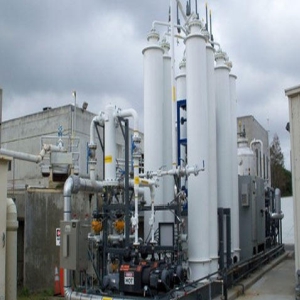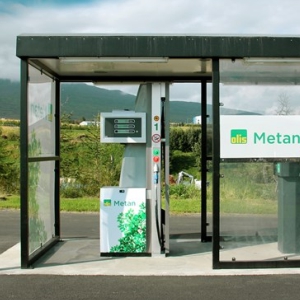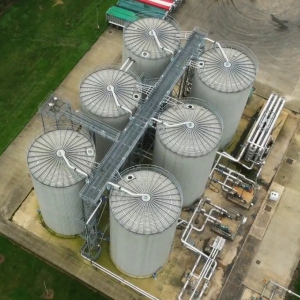In terms of global warming and independence of fossil fuels, biogas has a number of advantages. Produced from biodegradable wastes, biogas can be used for the production of low-carbon heat and electricity and can be upgraded for use as a vehicle fue
Biogas upgrade
Biogas is made up of methane, carbon dioxide, hydrogen sulphide, water vapour and other minor constituents and particulates. The methane, and therefore the energy, content of the biogas can increase by removing the other constituents - the methane content can be increased to 98% or more. In this form, biomethane is suitable for injection into the gas network or used as a vehicle fuel.
Tech Inventa has advised a number of clients on biogas upgrades, which creates high grade renewable fuel and removes those constituents that have the potential to corrode or cause mechanical wear to a facility.
There are a number of technologies available for the removal of CO2, which are continually being improved and developed upon. It is important to choose the most appropriate technology for the task, based on plant-specific parameters.


Biogas as a vehicle fuel
Biomethane can be compressed or liquefied into Compressed BioGas (CBG) or Liquefied BioGas (LBG), which can then be used as a vehicle fuel. Natural gas used as a vehicle fuel can lead to a 20-30% saving on carbon emissions. The process of capturing biomethane can lead to a 100% reduction in greenhouse gas emission compared to other energy sources.
Vehicles running on biomethane have lower emissions of particulates, NOx and SOx and are known to be quieter running than engines running on petrol or diesel.
Tech Inventa has been involved in pre-construction planning, design and inspection of a significant number of vehicle fuelling stations.
Tech Inventa has been involved in pre-construction planning, design and inspection of a significant number of vehicle fuelling stations.
Anaerobic digestion of sewage sludge and organic wastel
A city with a population of one million has the potential to generate 17,300,000 Nm3/year of raw biogas from sewage sludge. This is equivalent to 110 GWh; enough energy to provide heat and electricity to 4,400 households.
Alternatively, 280,000 homes can be supplied with heat and electricity from biogas generated from 8 million tonnes of organic waste.
Tech Inventa has considerable experience in the preparation of anaerobic digestion (AD) plant business models.
The underlying analyses investigate appropriate composition and volumes, consider the security of feedstock, evaluate the potential energy production levels and digestate output, and identify and evaluate end markets. Once a conclusion on the feasibility and scale of a plant has been reached, Tech Inventa can select, design and procure the correct reception facilities and waste handling equipment as well as the AD plant itself.
Our services after the pre-study stage cover the entire project cycle from preliminary design, permit applications and EIAs to final design, tendering, supervision, commissioning and performance tests. We also perform periodical inspections and analysis of risks and operational safety.

